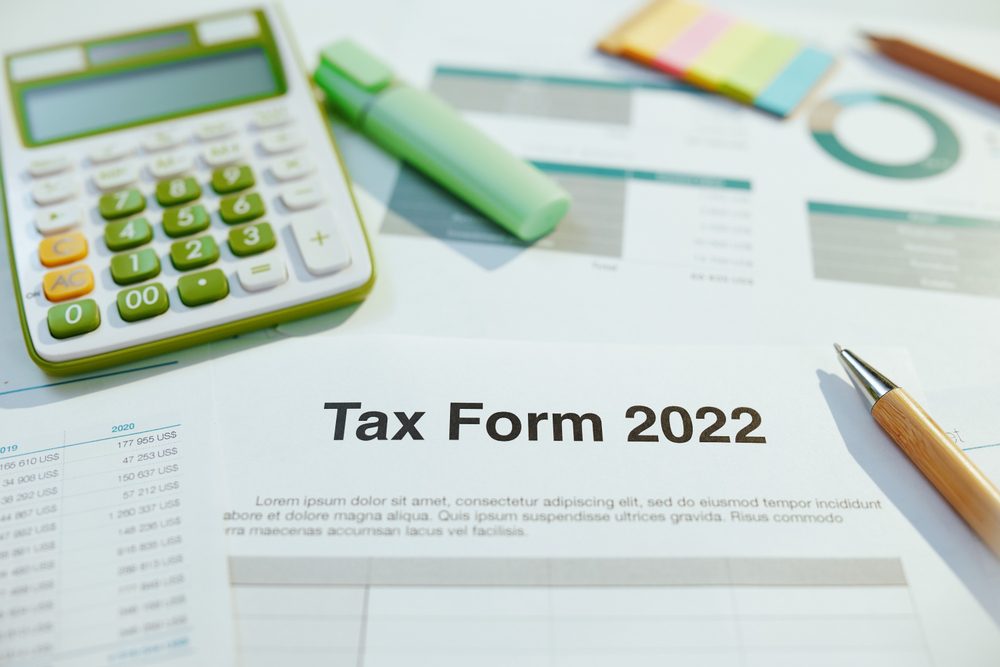Retirement is meant to be easy, but with inflation rising, the overall situation is more complicated. That’s why you should pay more attention to your finances and save as much as possible. We all know that the sooner you begin saving for your golden years, the better it will be. Nobody likes taxes, especially nowadays when everything is expensive. All you have to do is take it easy but, at the same time, prepare yourself for the tax season.
A lot of people tend to neglect this issue because they don’t consider that taxes will affect their retirement income. Keep reading to find out some ways on how to cut down on taxes and save more money for the years to come.

1. Know the differences between retirement savings accounts
Maybe you are aware of the fact that there are plenty of ways to keep your retirement savings in one place. These saving accounts allow you to have a lot of benefits. A lot of them are not taxable in retirement.
A Roth 401(k) and a Roth IRA are two accounts that allow you to take out as much money as you like without owing taxes.
You will be able to delay paying income tax on your retirement savings until retirement. But be careful and read all the rules before you use your accounts. You can get a penalty tax if you don’t use them accordingly.
2. Make strategic withdrawals
After you turn 72, you can take a Required Minimum Distribution (RMD) from some tax-advantaged retirement accounts. Those accounts are 401(k) and IRAs. There are some rules regarding this matter, and one of them is based on your age and the other one on your account balance. Otherwise, you are free to withdraw funds whenever you need to.
Maybe you are going through a difficult time and you may want to withdraw a large amount of cash from your accounts, but no need to worry because all of the money will be taxed at a lower rate.
Keep in mind that there is a penalty tax if you fail to withdraw the correct amount of money. The first mandatory minimum distribution is usually due by April 1st of the year you turn 72 years old.
3. Live in a tax-friendly state
This is by far the best strategy when it comes to saving taxes. Living in a tax-friendly state might be easy for some people, especially if they have lived there their entire life. There are a lot of states that have no income taxes, and some of them are: Florida, Texas, Washington, South Dakota, Alaska, and Nevada.
After retirement, you can move to another place, especially if you don’t plan on working anymore. There won’t be any limitations and you can go to a new place that will offer you some help for golden years. If you are from California and you plan on moving to Florida, you must know that your pension won’t be taxed anymore.
4. Catch-up contributions
If you are over 50 and you’re still working, you are eligible for an additional tax break, but only if you make catch-up contributions to your retirement account.
As an older employee, you can delay the taxes on an additional $6,500 in a 401(k) for a total contribution of $27,000. This is an advantage because the younger workers won’t get this deal. IRAs allow catch-up contributions if you are already 50 years old.

5. Understand your social security benefits
For those of you who don’t know about Social Security and its benefits, let me tell you this: This program replaces a small amount of a worker’s pre-retirement income based on their earnings. This may differ from one person to another, depending on income.
If you don’t need Social Security, then maybe delaying it is the best solution. You can do that until the age of 70.
If your provisional income is less than $25,000 if you are single and less than $32,000 if you are married filing jointly, then none of your benefits are taxed. In another situation, if you are single and your income is somewhere between $25,000 and $34,000, you should know that 50% of your benefits are taxable.
6. You can get more help if you’re disabled
If you are retired on permanent or total disability because of an unfortunate event, such as an accident, you may be eligible for up to a $7,500 tax credit.
Just be careful and don’t rely on it to cut your taxes because a lot of people have pensions and Social Security benefits that exceed the income limits. In this case, you will owe $250 in taxes, but you can qualify for a $5,000 credit.
7. Know what you spend
What are your plans regarding retirement? Do you plan to travel? Do you plan on taking some classes or starting something that you have always wanted to do? Be aware that these activities will cost you a lot of money. Make sure you don’t forget about health care costs.
This is because when you are older, your health will probably not be as good as it used to be. Once you know exactly what your plans are, you will be ready to start saving. Don’t think it’s too late!
Make sure you do your best to have a good retirement.
8. Saver’s credit
If you earn more than $30,000 and you are single, you will be eligible for the saver’s credit.
Moreover, if you are married and earn more than $50,000, you will also be eligible for the program. You can claim this credit if you have contributed at least $1,000 ($4,000 for married couples) to your retirement account. In addition to the tax deduction for traditional pension contributions, it is also possible to apply for a savings loan.
What do you think about this program? Are you aware of its benefits?
9. Use Roth IRA with caution
If you have other IRA accounts that were financed with deductible contributions, the quantity converted to the Roth IRA account may be taxable. But if you don’t have a Roth and you earn a good amount of money, you can still start one by putting all your contributions into a basic nondeductible IRA account.

10. Everything starts with a plan
Having a plan before retirement is crucial. Even if you have a lot of time until then, it’s never too late to take advantage of the benefits of tax planning. You have to be ready for everything. Take into consideration the inflation that is happening. If you don’t know where to start, ask for some professional help. Professionals can help you maximize your income and reduce your taxes as much as possible.
And don’t forget to enjoy your golden years, despite everything that could come up.
Happy Retirement!
…If you find this article helpful and you want to read something that will teach you how to better manage your finances, check out this article as well: How to Negotiate a Better Price at Your Local Market.









